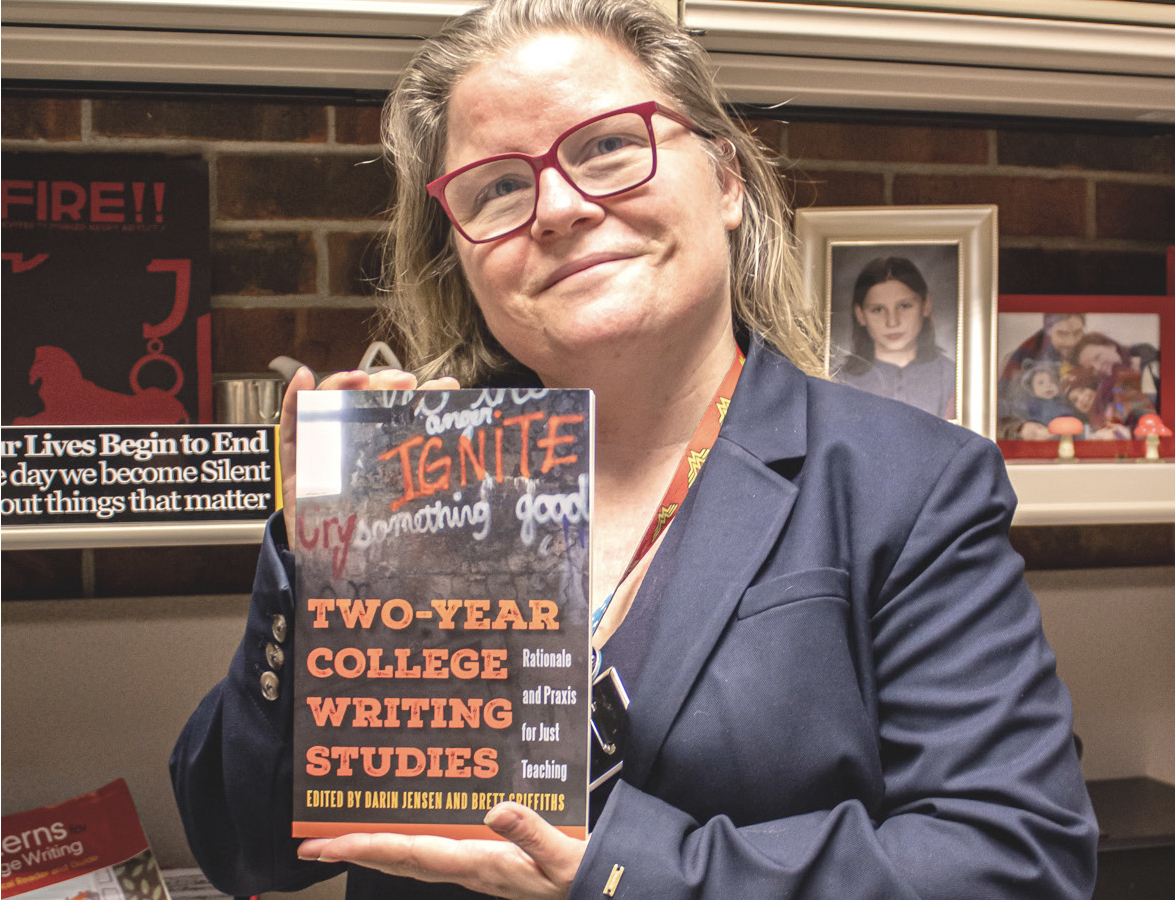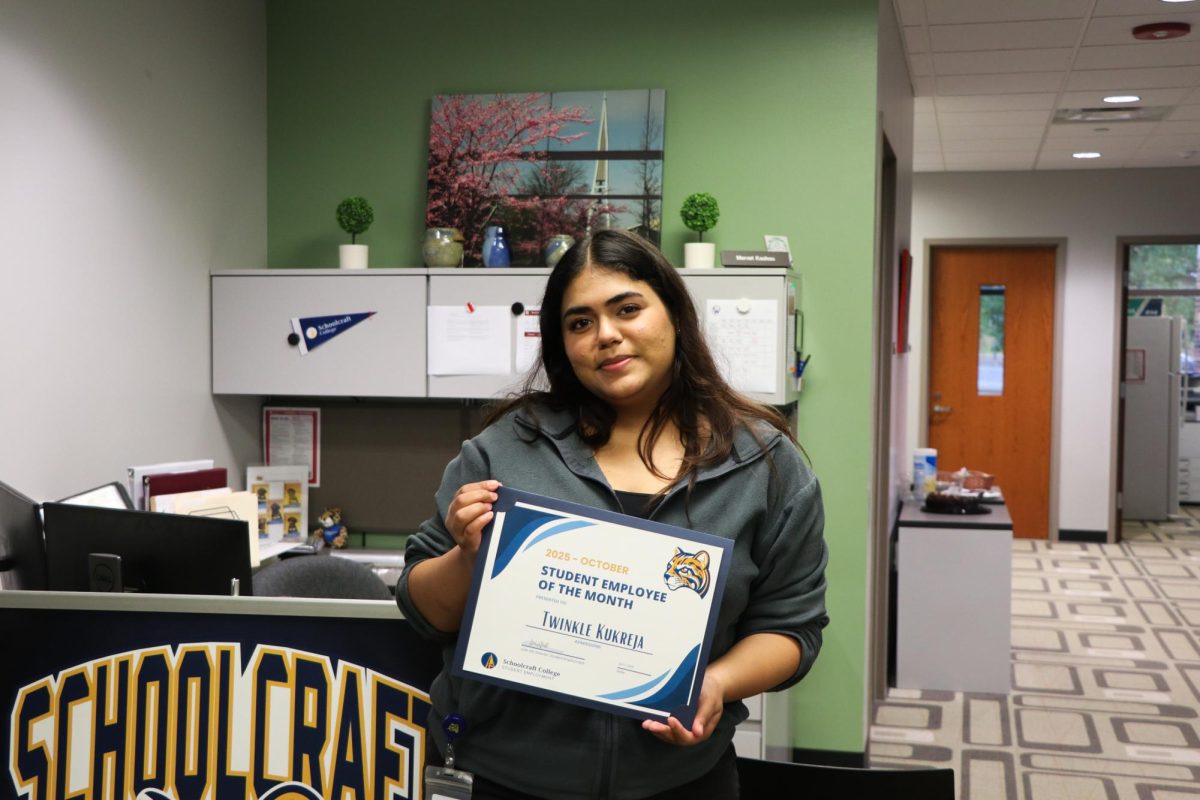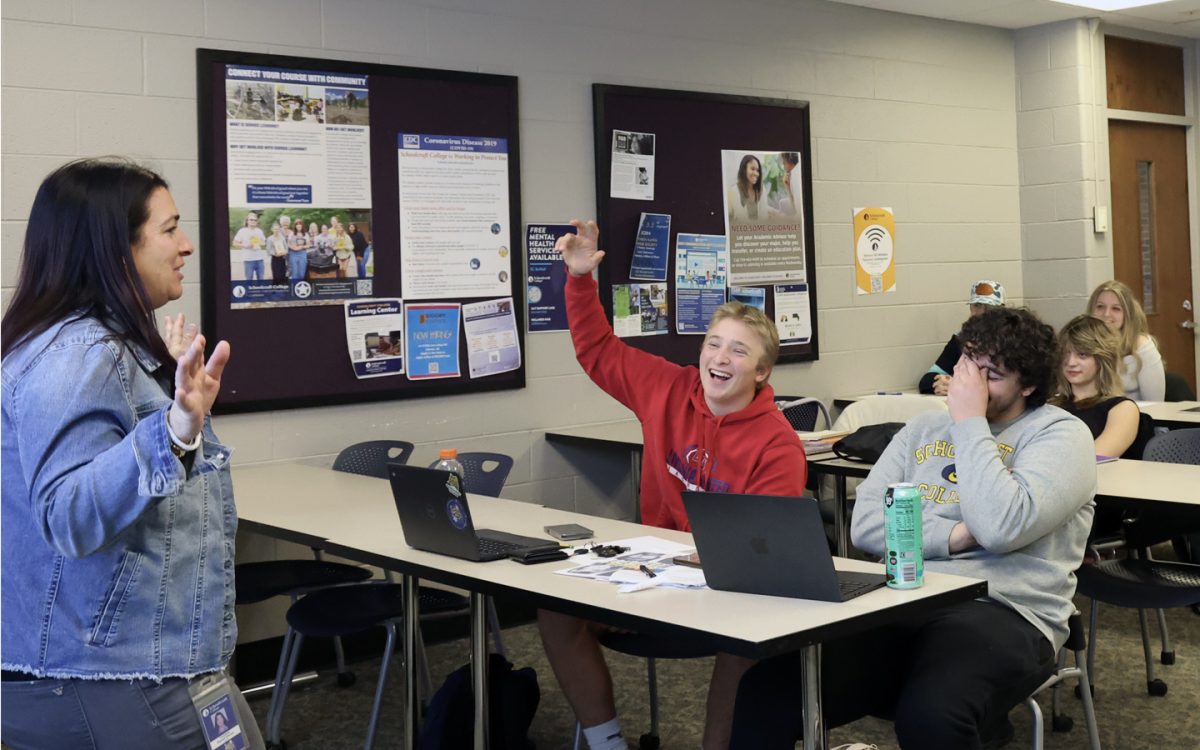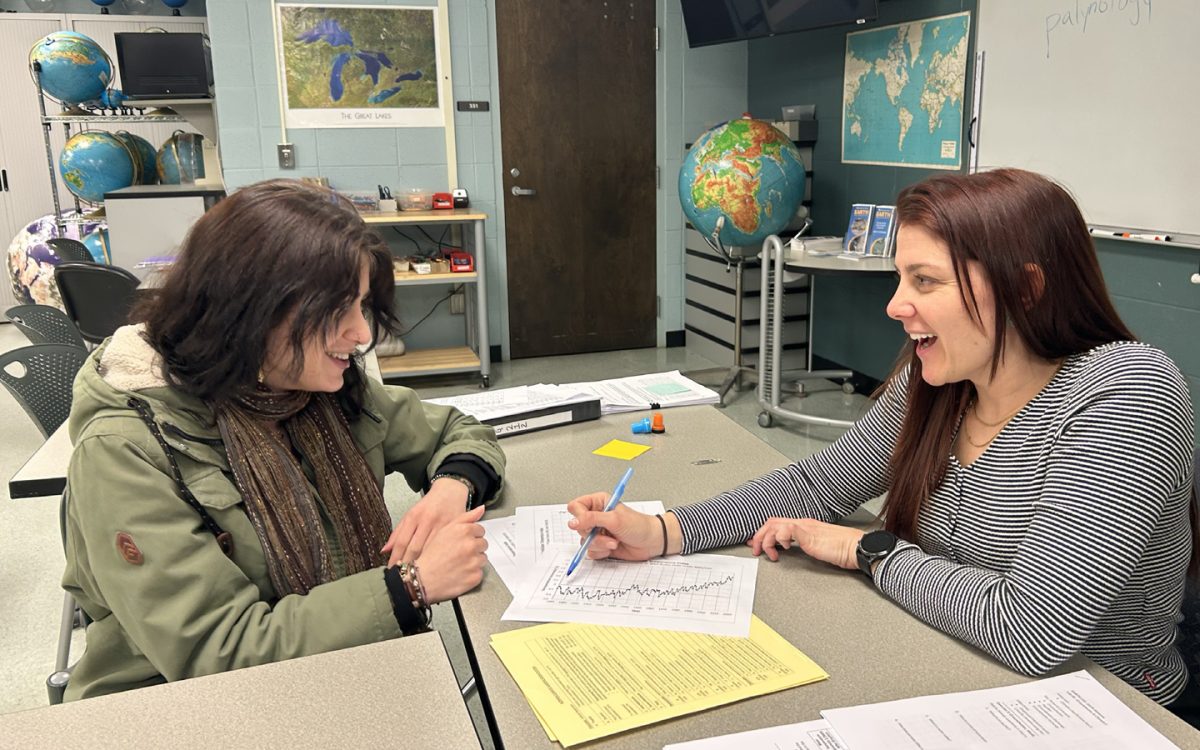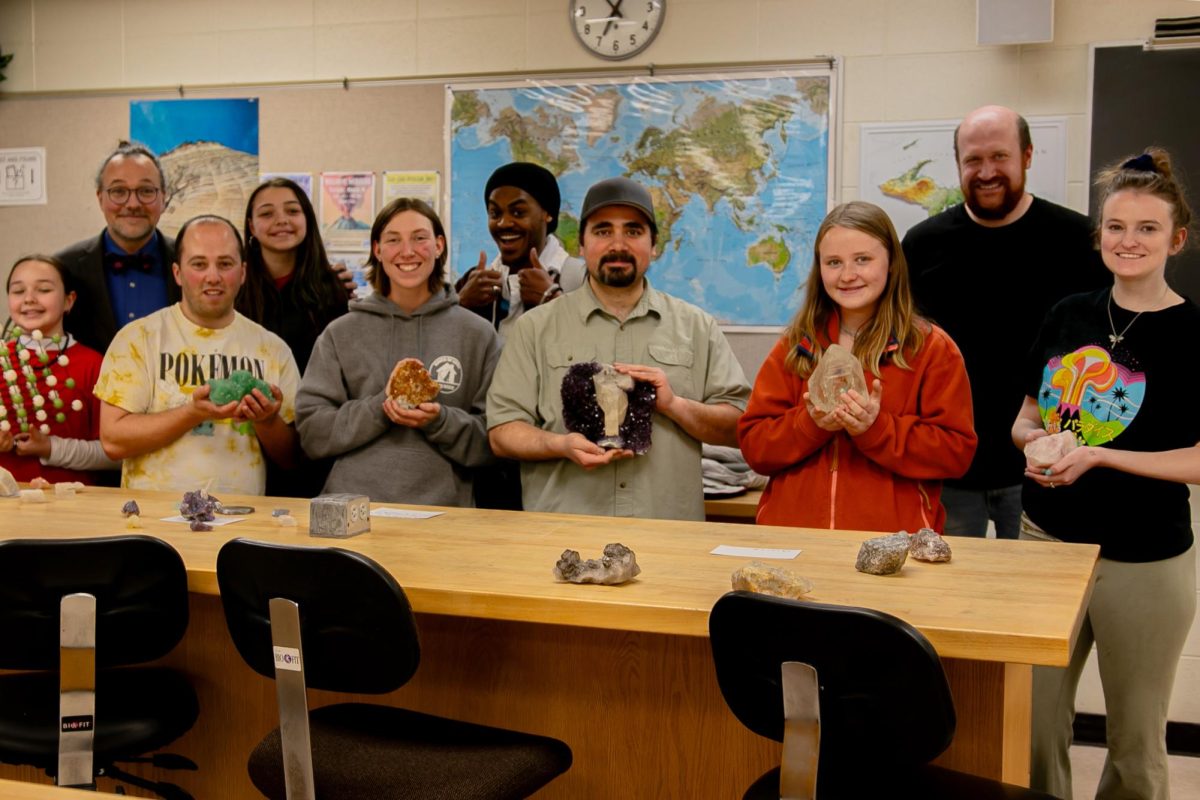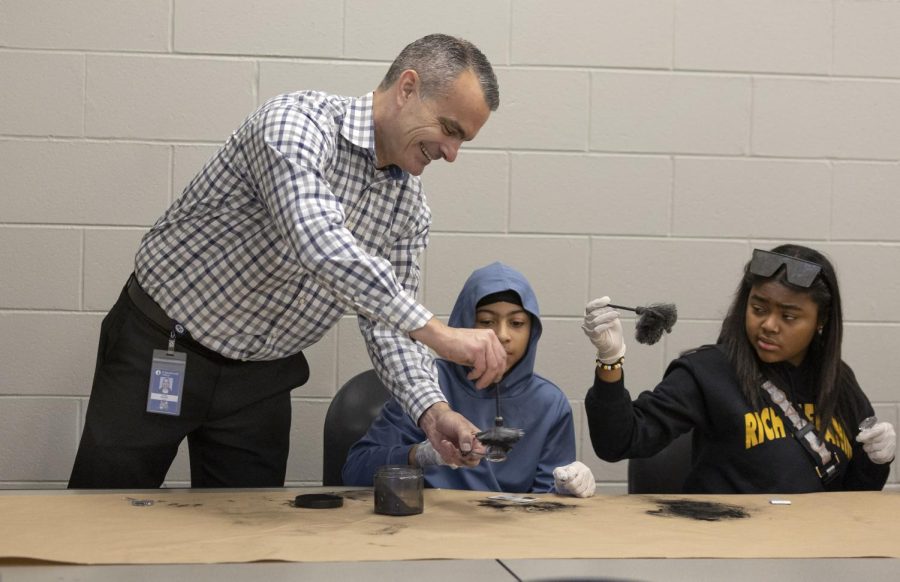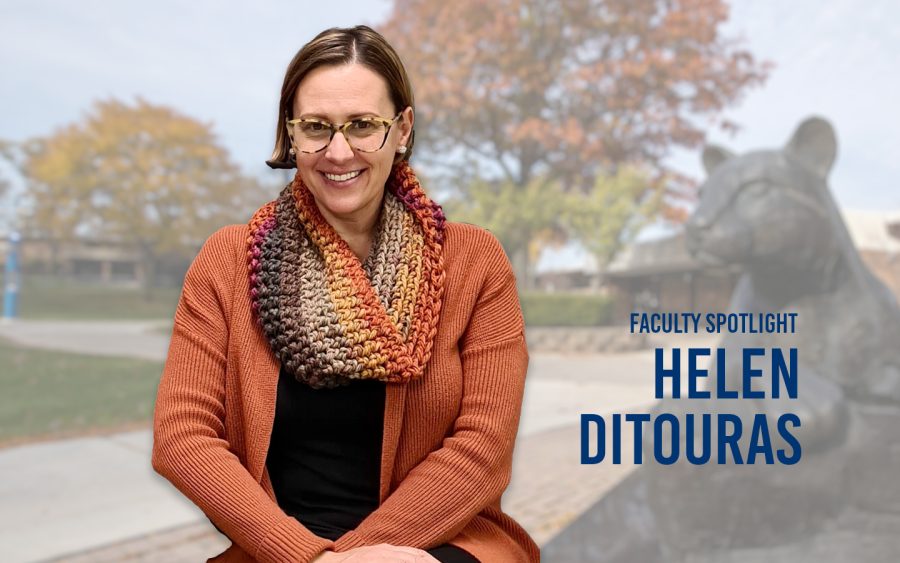Professor Brett Griffiths, typically referred to as “Griff” by her students, started teaching at Schoolcraft January 2022. She has been teaching, researching and supporting college-level writing since 1999. Ever since she’s been teaching, she has dedicated time to attending panels addressing inclusivity and diversity at conferences. Griffiths and her co editorial author Darin Jensen noticed that two-year colleges were underrepresented in these panels; bringing life to their book “Two-Year College Writing Studies.”
However, in the beginning stages of constructing the novel, Griffiths and Jensen first asked themselves a familiar question many students themselves ask: “are we really smart enough to write a book?”
 After sending out proposals on Listserv, they realized they had to rethink the current diversity of their book. The last thing both authors wanted was another novel written by upper middle class white people writing about diversity.
After sending out proposals on Listserv, they realized they had to rethink the current diversity of their book. The last thing both authors wanted was another novel written by upper middle class white people writing about diversity.
After their reality check, more proposals were sent out, reaching out to professors of different communities. Though it wasn’t as diverse as they originally wanted, they were able to move forward. When that draft was completed, the pandemic hit. Consequently, they realized they had to include what they witnessed during the pandemic. This included the struggle of being full time students, losing their jobs and activists for many of the social movements that happened during 2020. “All these things were happening at the edges of our zoom room,” said Griffiths. After including what they witnessed during the pandemic, they were ready to release their book.
The study of writing has changed since the 19th century, with most of the change happening in four year universities. There is a gap in the studies of students who are in two year colleges. Coming to light are the complexities that come with students who attend two year colleges and the challenges community college professors may encounter. The age range can be from high school students, single parents and those who have retired. With this said, that means with such a wide range; there are differences in how each generation communicates and writes.
Professors can struggle to understand the differences each student has in cultural backgrounds, leading to diverse writing styles. “Two-Year College Writing Studies’ is and should be an entire area of study, because it is not fully recognized by the universities that are preparing people to teach in two year colleges,” said Griffiths.
During the interview, Griffiths mentioned the case regarding three Black students who were placed into remedial classes due to them speaking AAVE (African American Vernacular English). The year 1979, the case Martin Luther King Junior Elementary School Children et al. v. Ann Arbor School District, brought to attention that not every home is the same in regards to cultural communication.
“Writing is really deeply intertwined with identity and learning, which makes learning to write different from other fields,” said Griffiths. The cultures of others should be acknowledged and respected.
In the previously mentioned case, the judge ordered the school district to find a way to integrate the communication of Black English speakers when teaching how to read and write. This case study brings the question, should teachers be cognizant and honor how other students communicate and integrate this into their teaching?
Having the ability to intertwine their culture into their writing could allow an opening of a true learning experience for students. Some teachers may not be acknowledging that students can come from different backgrounds. When writing their syllabus, it may not be considered that not all students have access to the internet, a laptop or enough money to purchase books.
When at a celebration of publication of “Two-Year College Writing Studies” Griffiths was overheard addressing this issue. “I have students who talk about having twenty thousand dollars sitting in their bank account, while another cannot even afford bus fare to get to school.”
With this all said, the book aims to help teachers of writing at two-year colleges and those who research their teaching are more aware of addressing all of the gaps in academic writing that needs to be addressed in two year colleges.
It’s perfectly clear that Griffiths is passionate about writing. It was asked if she always knew that she was going to be a writer. With exclamation, she enthusiastically said since second grade she knew she wanted to be an author; though she never expected to be an academic writer. She struggled with writing her dissertation for her PHD program. She stated that she hated it and could not wait to get back to teaching. Though, she grew to love academic writing because it gave her different perspectives from students and colleagues.
Since the book was released in Oct. 2023, she has contributed to a multi-voiced symposium article reflecting on the last 50 years of research on teaching writing in two-year colleges. She recommended next steps for teachers and scholars, which is published in the journal Teaching English in the Two-Year College. She is currently working on a memoir and revising a book of poems which is hoped to be released soon.



